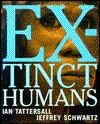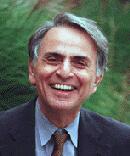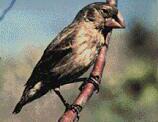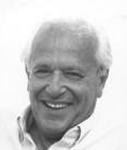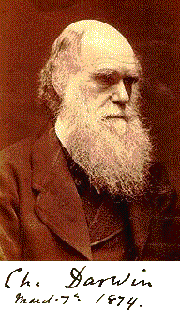 |
Evolution Links to our Past News of the Present Insight for the Future |

© Linnean Society of London |
|
|
Books About Evolution
with a
Recommended Introductory Reading List
|
| ||||||||||||||||||||||||||
|
Bakker, Robert T.
Barlow, George W. Bates, Henry Walter Behe, Michael Berra, Tim Cavilli-Sforza, Luigi Luca Clack, Jennifer Dawkins, Richard Dembski, William A. Dennett, Daniel C. Diamond, Jared Dover, Gabriel Edey, Maitland Eldredge, Niles Fortey, Richard |
Futuyma, Douglas J.
Gould, Stephen Jay Grant, Peter R. Holldobler, Bert Johanson, Donald Johnson, Phillip E. Jones, Steve Lewin, Roger Lewontin, Richard MacArthur, Robert H. Mayr, Ernst Miller, Kenneth R. Milton, Richard Moreland, J. P. Morris, Simon Conway |
Pennock, Robert T.
Powell, James L. Ridley, Matt Ruse, Michael Sagan, Carl Sforza, Luigi Luca Cavilli- Smith, John Maynard Tattersall, Ian Tudge, Colin Wallace, Arthur Russel Watson, James Weiner, Jonathan Wells, Jonathan Wills, Christopher Wilson, Edward O. | ||||||||||||||||||||||||
|
Before one can understand much about evolution one must have a basic understanding of biology. There can be no substitute for a biology textbook and a good teacher. Some people are capable of learning by reading alone. If you need a grounding in biology you will find several texts available online at my Biology Page. You will see many icons there for Kimball's Biology and the Online Biology Book. The worst thing you can do is to begin reading a book intended for the mature reader and not be able to understand it. Most authors assume that their readers have a basic competency in biology and do not write for the beginning student. Get the grounding if you need it. You will then be able to better understand and enjoy books written for the informed layman. You do not have to be an expert to read natural history. You do need to start at the beginning.
Finding Darwin's God by Professor Kenneth R. Miller. Dr. Miller teaches cell biology at Brown University and is a leading author of high school and college biology textbooks. You can see his books and essays here. Dr. Miller is a professing Christian who opposes the rejection of factual science by creationism and the Intelligent Design Movement. You can read reviews of the book as well as excerpts from Finding Darwin's God here.
Rocks of Ages by Stephen Jay Gould. Although an agnostic and non-practicing Jew, Dr. Gould loved to sing Handel's Messiah and other religious music with a choral society. His slender book is a beautiful contribution toward resolving conflict between religion and science. Rocks of Ages, with excerpts, can be found here. You might enjoy reading some of the reviews of this book.
Can a Darwinian be a Christian? by Michael Ruse. Professor Ruse teaches Zoology and Philosophy of Science. He also has credentials in theology. His book answers, in the affirmative, the question posed by its title. A Darwinian can be a Christian and vice versa. After all, millions of layman and scientists testify to this fact. Dr. Ruse's books and essays may be seen here and excerpts from the book Can a Darwinian be a Christian? may be read here.
Other books, opposing creationism and opposing evolution, may be found in boxes at the right, below. I simply suggest that the argument is unnecessary and that any of the three books mentioned above demonstrate that this is so.
Before reading any book about genetics you should first have a basic understanding of what DNA is, what is looks like, how the genetic code (or sections of it) can be read and compared both within species and between species. Use the resources provided on my Biology Page to learn the basics or to refresh your memory on the subject. You will find many more resources on my Genetics Page. Here are three very good books:
Genome: The Autobiography of a Species in 23 Chapters by Matt Ridley. Each chapter of the book is related to one of the human chromosomes. Ridley is a science writer in the UK and has several best-selling science books to his credit. He writes clearly and knows how to make a complex subject interesting to the lay reader. The book is not illustrated and gives only the briefest background information about basic genetics. Click on the book to learn more.
Dear Mr Darwin: Letters on the evolution of life & human nature is a delightful book by Gabriel Dover, Professor of Genetics at the University of Leicester, UK. Dr. Dover educates his readers about genetics while carrying on a correspondence with Charles Darwin at Westminster Abbey. Darwin even brings Newton into the picture as he learns the news about genetics—unknown in his day. We even learn about Manchester United and soccer, erroneously called football by some. Click on the book to learn more.
Genes, Peoples and Languages is a small but very interesting book by Professor Luigi Luca Cavalli-Sforza. It describes how modern human languages evoloved over the last 10,000 years, and tells how genes can be used to track the diversification of a species—us. You may read reviews of the book and excerpts from it here. I have Dr. Cavalli-Sforza's cladogram for human languages near the bottom of this page. See where your language heritage appears on it.
This is for me a problem area in deciding what to recommend to you. The fossil record is immense and no single book can cover all of it. There are technical books full of cladograms and short on text. There are monographs dealing with a single genus or family that might bore you to tears. There are also some hignly readable books that deal with the evolution and extinction of animals within important periods of geologic time. These will provide you with some information about the history of the earth as well as about the evolution of life.
Crucible of Creation: The Burgess Shale and the Rise of Animals by Simon Conway Morris. This is the story, from the perspective of a scientist who literally opened up the fossils to discovery, of a group of the earliest fossils from the Cambrian Age of Canada. Learn about the difficult work required to unravel the evidence after the fossils are brought back to the museum. You can read reviews of as well as excerpts from Crucible of Creation here.
Gaining Ground: The Origin and Evolution of Tetrapods by Jennifer Clack. In this book Dr. Clack explains in great detail how the tetrapod (that's us) leg evolved over millions of years before amphibians first emerged onto land. Find out what it really takes to close a fossil gap. I have a separate page featuring this important book, and with many more details, available here. You can read reviews of Gaining Ground, as well as excerpts from it, here.
With each passing year the fossil record, anthropology, genetics and other disciplines continue to inform us with new evidence about our past. One problem arising from the rapid advances in knowledge is that almost all books on the subject of human evolution are outdated when they are released. I have chosen to recommend three very different books here. Extinct Humans is a complete discussion of the fossil evidence through about 1999. For discoveries since then please see my page on Hominid Transitionals. The book Lucy focuses on one particular fossil and gives a thorough description of the labor, luck and lives of some paleontologists. Blueprints is by the same authors, and has just one excellent chapter on human evolution. The rest of the book is a "must read."
Extinct Humans by Ian Tattersall and Jeffrey Schwartz. You won't find a prettier book than this one, but it's somewhat pricey. It is richly illustrated with photos, drawings of fossils, footprints, maps and other graphic aids. The authors discuss the vigorous competing viewpoints that exist within paleoanthropology. You can read reviews of as well as excerpts from Extinct Humans here.
Lucy: The Beginnings of Humankind by Donald Johanson and Maitland Edey. This tells the story of the discovery of the fossil called Lucy, and of the subsequent work that went into establishing its age and taxonomic status. At the time she was the best example of a transitional hominid, although it is not certain that she is in the direct line of ancestry of modern humans. This book offers an appreciation of the problems encountered in paleoanthropology. Lucy may be available at amazon.com.
Blueprints: Solving the Mysteries of Evolution by Maitland Edey and Donald Johanson. You might encounter problems finding this book, but it is worth the search. Only one chapter deals specifically with human evolution and DNA. Reading that alone is worth the trouble. But the book is also a fine overview of evolution. It is clearly written and contains significant material on the history of evolutionary thought and research.
Reviews of Blueprints and buying information are available here.
Yes, there are lots of book to choose from. You might want to read one from each group mentioned above. I have listed many more below without descriptions. As you have now learned you can find reviews for almost all of them at amazon.com, and for most them you can browse the table of contents and read sample pages or chapters. Two of my favorite links on the web are for Amazon and Barnes & Noble.
| ||||||||||||||||||||||||||
|
|
|
Icons of Evolution: Science or Myth? : by "Jonathan" (John Corrigan) Wells
This book by Wells completes the trilogy of attacks, begun by Phillip Johnson and Michael Behe, on the teaching of evolution in public schools. To be fair to Wells, some of the criticism he levels at current textbooks in biology is justified and factually accurate. However, his survey is neither broad enough (I found much less of what he claims in another 9 textbooks) nor is he honest about his purpose. Since his days in theology school, where he was supported by The Moonie religious cult, his announced purpose has been to destroy what he terms Darwinism -- and which he concludes is Atheism. Reviews from credible sources have begun to accumulate here.
|

Creationism's New Bible Masking as Science
Darwin's Black Box : The Biochemical Challenge to Evolution
Boston Review : Allen Orr, Evolutionary Biologist, Reviews "Darwin's Black Box"
|
Books | Botany | Cell Biology | Chemistry | Creationism | Current News | Darwiniana
Dict. / Encyclo. | Ecology | Education | Essays | Eugenics | Evolution | Fossil Record
Genetics | Geology | Gouldiana | Health | Homework | Human Origins | Intermediates
Math | Museums | Origin of Life | Paleontology | Photos | Physics | Reference Aids
Science Journals | Sociobiology | Taxonomy | Transitionals | The Universe | Zoology
books.htm Last Updated April 22, 2024 Links verified April 22, 2024












